

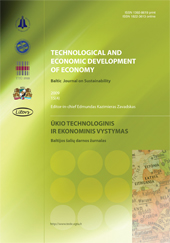
Keywords: hybrid media concepts; hybrid management concepts; blended learning; electronic communication; change management; e-learning; higher education
Hybrid media concepts, i.e. especially combinations of face-to-face instruments and electronic media, represent a standard in many fields of application for quite a long time. Such combinations of diverse, and thus hybrid instruments are meanwhile quite commonly used, for example, in marketing, in retail business, for communication in virtual enterprises, in internal communication processes, in human resource development and in higher education. By combining strengths of two or more media and by mutually compensating their weaknesses, hybrid media concepts aim at enhancing performance with respect to effectiveness and efficiency. So far, however, scientific discussion lacks a common understanding of the architecture of hybrid media concepts as well as empirical evidence on the application of hybrid media in practice. Hence, it is unclear to what extent the performance potential of hybrid media concepts is utilized in different application fields and what the drivers of the use and performance of hybrid media concepts are. This article presents and discusses both a conceptualization of hybrid media in terms of diversity, proportions and coupling of hybrid concepts and empirical evidence on hybrid media concepts in two typical application fields: internal communication in change management and blended learning in higher education.
More...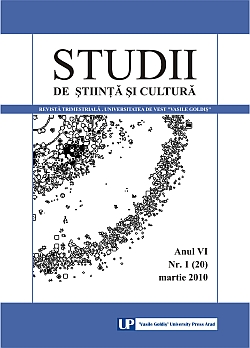
Keywords: translation criticism; evaluation principles; translation procedures; equivalence; adequacy; correspondence; correctness; objective evaluation.
This paper is meant to approach poetry in translation in the light of translation criticism. The evaluation in this case has to be undertaken by a translation critic, that is, by a person with a degree of specialization in translation studies, according to some “objective criteria” that lie at the basis of translation criticism. The principles for evaluating literary translation, in general, and translated poetry in particular, raise translation standards, and, consequently, support and promote an increasing interest in better translations. The paper is divided into three sections: (a) translation criticism: an essential link between translation theory and its practice; (b)subjective translation judgement(s) versus objective translation criticism; (c) case study: “săpânţa în primul gând” by Laurian Stănchescu
More...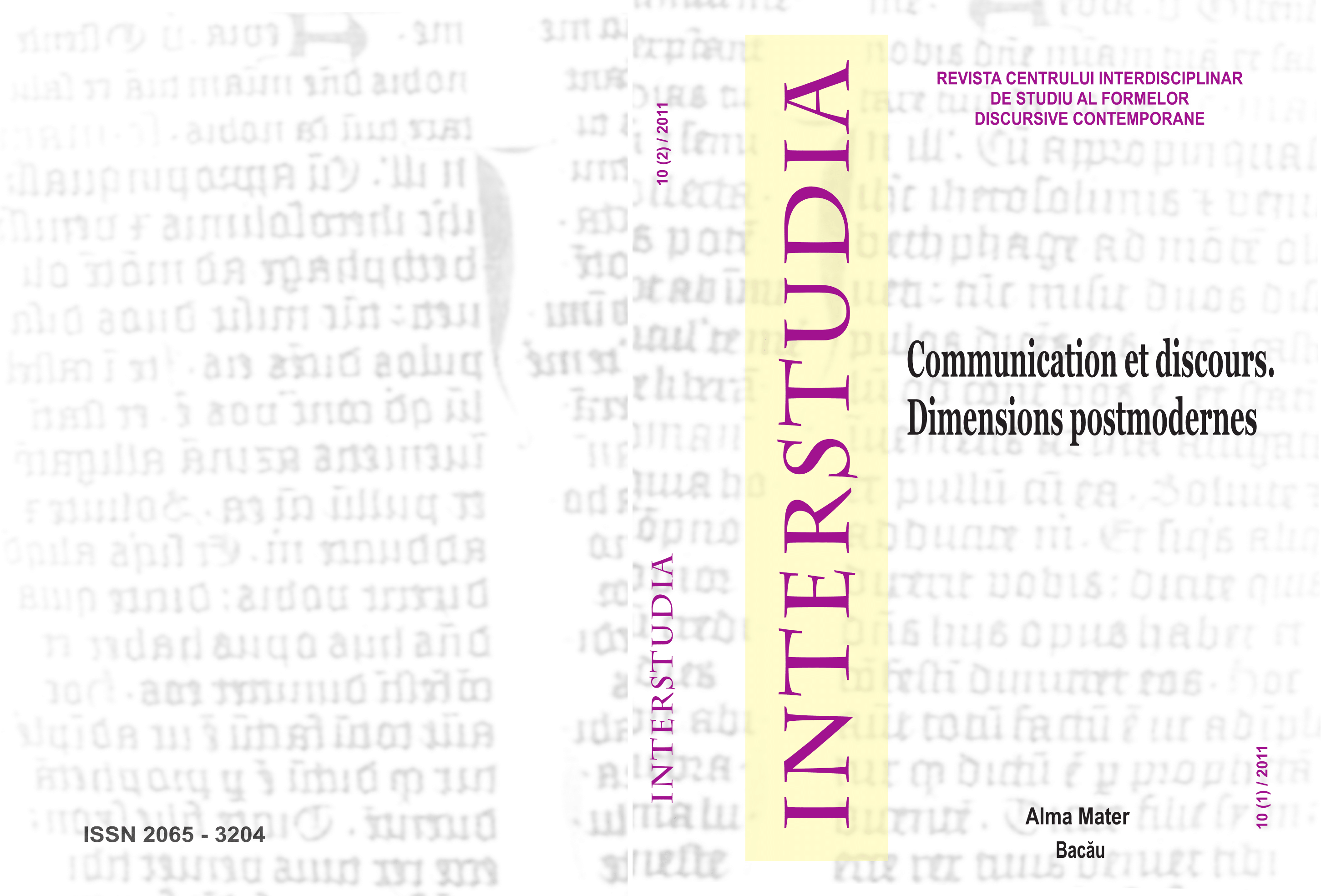
Keywords: decision-making in translation; globalization; source-text; target-text; translation.
Globalization can be tackled as a consequence of technologies meant to reduce the costs of communication. This reduction has led to an increase in the global demand for translations. I shall approach this issue on David Lodge’s novel Out of the Shelter translated into French and Romanian
More...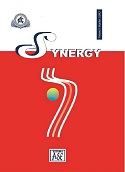
Keywords: identity; map; nomadism; diaspora
By making use of different theories stemming from research studies belonging to socialpsychology and diasporic criticism, this article discusses the intricate destiny of the main character in V.S. Naipaul's novel Magic Seeds. The paper focuses on the map metaphor seen as symbolic for one's journey to find one’s identity. The literary analysis demonstrates that the author’s purpose is to emphasize the multiplicity of identities assumed by the hero in search for his authentic self.
More...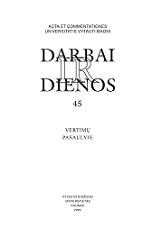
Keywords: Language; Advertising; Analysis; original; translate;
During the 20th century, globalization, international communication, marketing and economic forces contributed to the growth and spread of the advertising phenomenon. At present, advertisements occupy a considerable niche in our everyday lives, influencing our decisions and choices, no matter whether we are conscious of it or not. The persistence of advertising material can be illustrated by the fact that the market for advertising in Lithuania grew by 27.9 percent in 2005 in comparison with the previous year (TNS Gallup, 2005). Advertisements can be defined through their key functions, which are to attract attention, persuade and affect the decisions of the consumer. As a means of achieving these aims, a wide range of manipulative linguistic, visual and other devices are employed. The global scale of marketing leads to the fact that, in many cases, products and services are advertised on an international basis. Thus the verbal message of the advertisement requires translation. It is a well-known fact that different cultures may exhibit cultural specificities with respect to stylistic choices and other language-use preferences within the same genre.
More...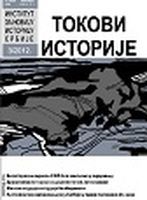
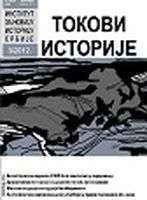
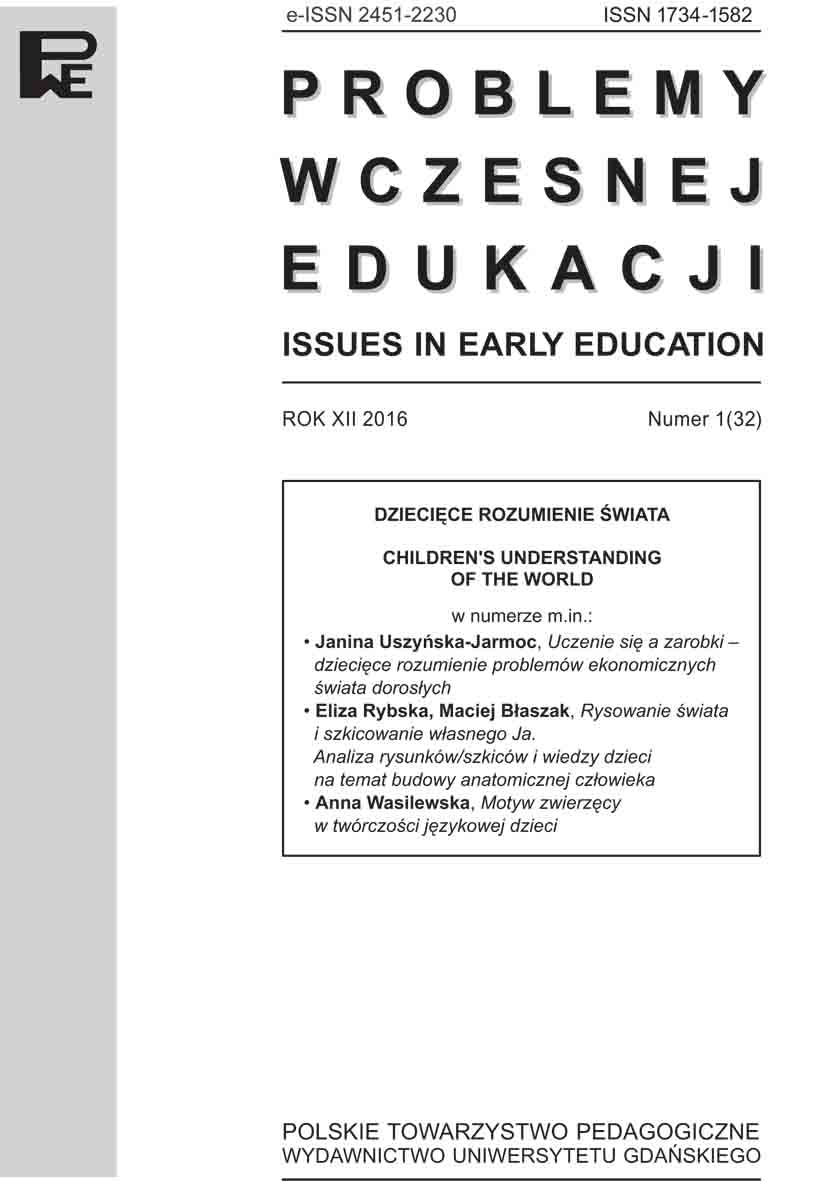
Keywords: default network; executive network; salience network; drawings; sketches; subjectivity
The authors claim that the graphic may also reflect the involvement of one of the networks. While drawings are produced by using the executive network, sketches are the results of implementing a default network. Both drawings and sketches make it possible to explore the children’s conceptions on a given topic. The differences between them are revealed when within this product, one might (or might not) find a reflection of subjectivity. While the executive network run by drawing allows one to reflect a concept, to answer a question, the inclusion of the default network allows one to run the autobiographical memory, to ask questions, and to search for an answer.
More...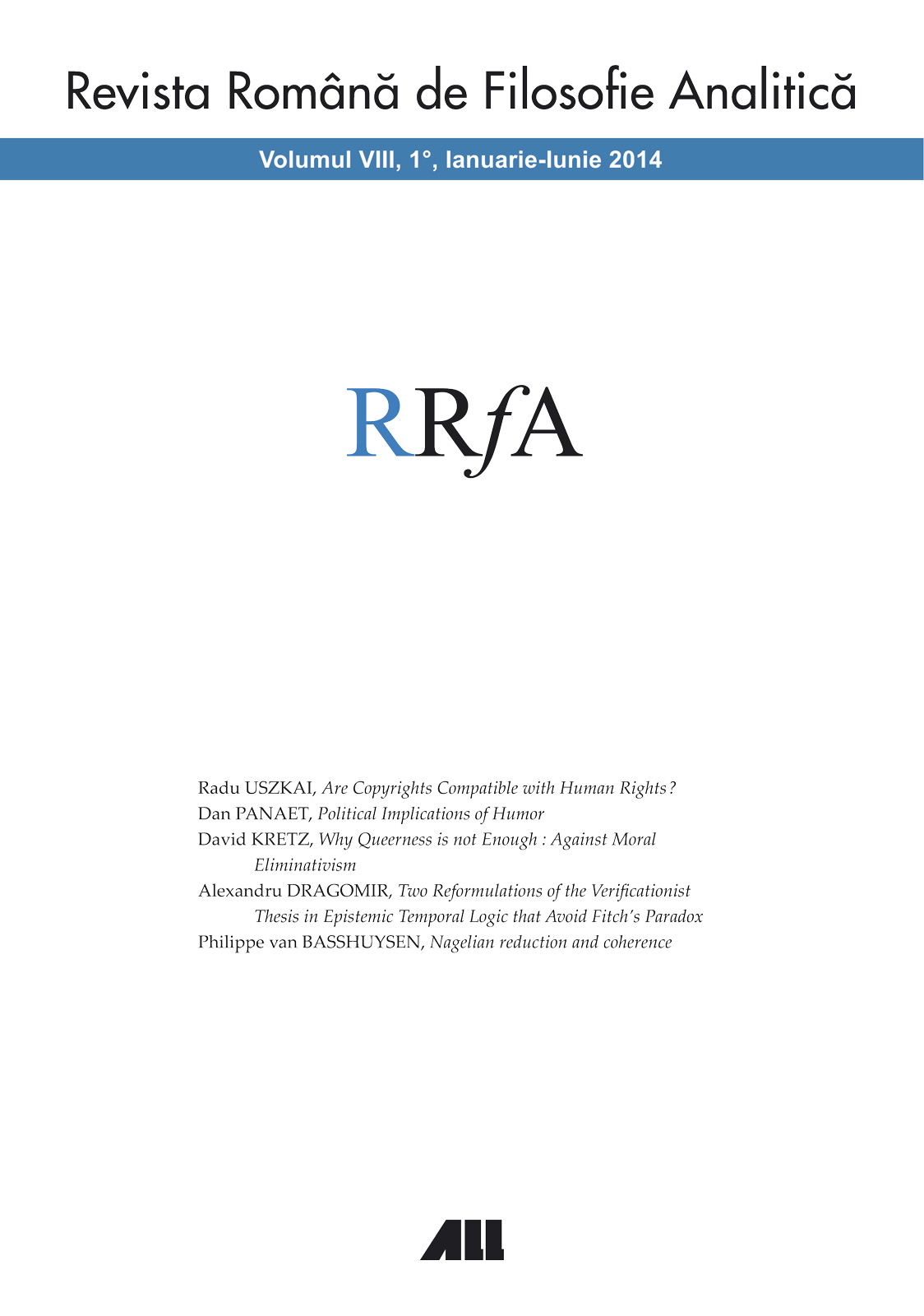
Keywords: humor; liberalism; conservatism; oppression; redescriptions
This paper discusses some political implications of humor, using as a point of departure the mechanisms that explain the sources of the comical. First, I briefly present the main explanations offered for why we laugh. I then focus on the cognitive view proposed Hurley, Dennett and Adams, according to which humor carries out the epistemic function of eliminating the errors that covert‑ ly entered a mental space. In the second section of the paper, I present two ac‑ counts of how liberalism continues to extend the scope of individual liberties. I use these views on liberalism as a background for my analysis of the politi‑ cal implications of humor, advancing the claim that, as a result of its epistemic function, humor has a strong conservative bias.
More...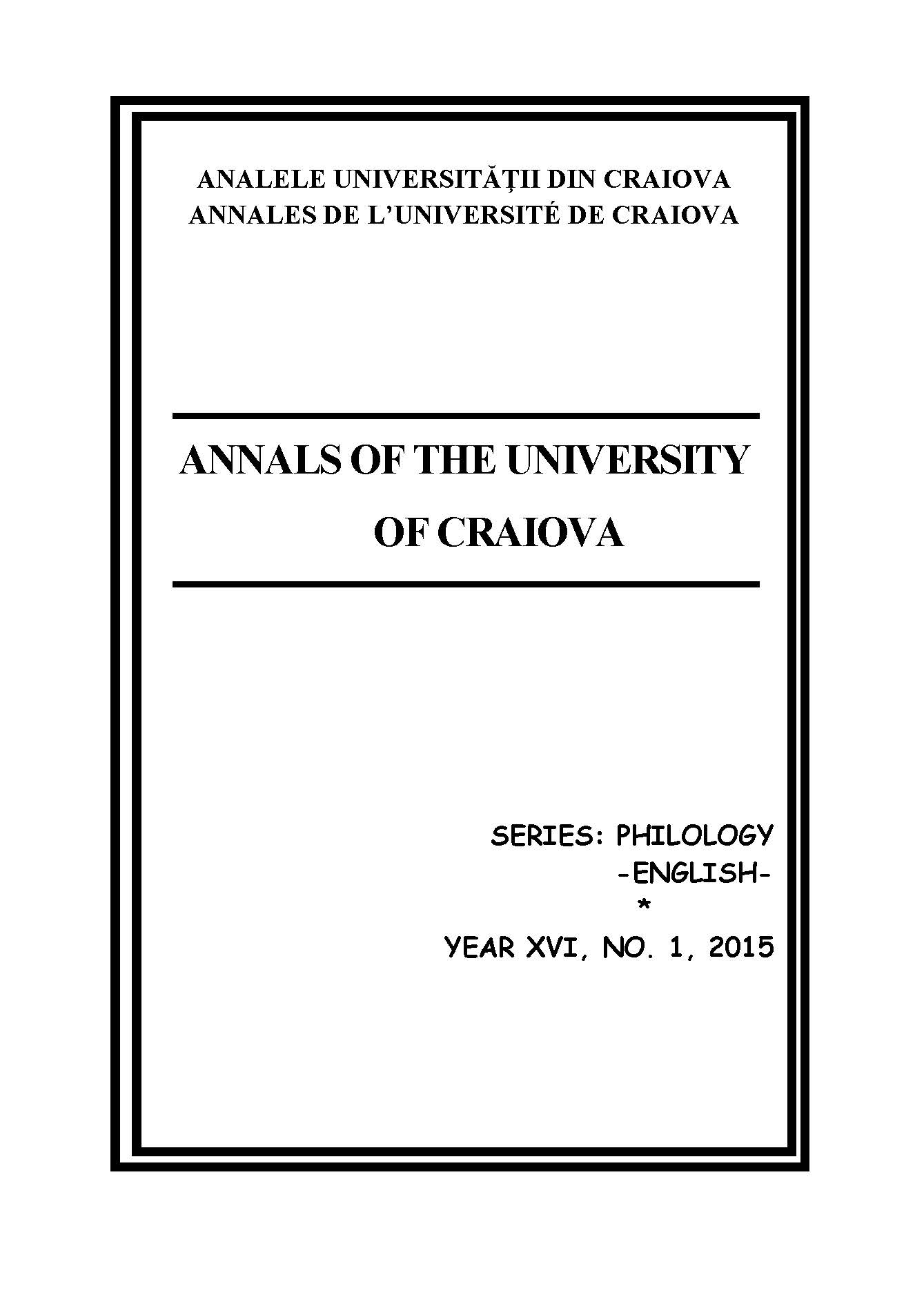
Keywords: translation procedures; suitable translation choices; TL naturalness and linguistic norms; formal and legal style; EU legal documents.
The present paper attempts to approach several translation procedures from the point of view of their usefulness to translators by enabling them to make the most suitable translation choices, thus avoiding possible translation inadequacies. On the basis ofbilingual English-Romanian examples, we discuss certain cases of one-to-one translation, transference, through translation, recognized translation, modulation, transposition, paraphrase, componential analysis, expansion (including explicitation) and reduction (including implicitation), which lead to flawless translations that are proper to the TL naturalness and linguistic norms, as well as to the formal and/or legal style. For the purpose of our analysis, we use a bilingual corpus of EU legal documents, which contains the English versions along with their official Romanian translations.
More...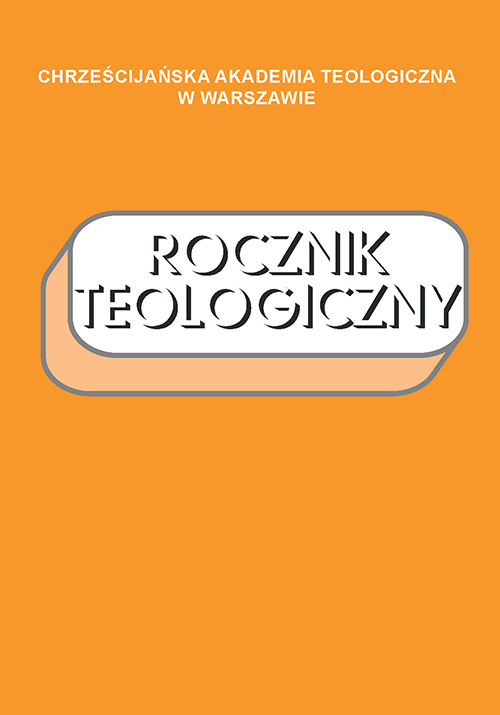
Keywords: tłumaczenie Biblii; tłumaczenie filologiczne; tłumaczenie komunikacyjne; Biblia Lutra; Gute Nachricht Bibel; adekwatność; dosłowność; ekwiwalencja formalna; ekwiwalencja funkcjonalna (dynamiczna)
W artykule przedstawiono dwa typy tłumaczeń Biblii: tradycyjny – filologiczny oraz współczesny – komunikacyjny, ich specyficzne cechy oraz możliwości zastosowania. Przy analizie przekładów i ich typów nie może chodzić o ustalenie, która wersja jest lepsza. Najpierw przybliżono zagadnienia teoretyczne i wyszczególniono ich różne typy, a następnie rozpatrzono czynniki, które trzeba uwzględnić w procesie tłumaczenia. Przekłady Biblii różnią się w rozwiązywaniu problemów dotyczących relacji między treścią i formą oraz różnic kulturowych, co zaprezentowano na przykładach Biblii, głównie na tłumaczeniu Lutra oraz Gute Nachricht Bibel. Różnice między poszczególnymi przekładami wynikają także z celu tłumaczenia oraz z uwzględnienia docelowego odbiorcy, dla którego jest on przeznaczony. Można twierdzić, że zrewidowane tłumaczenie Lutra z komentarzem (Erklärungsbibel) wymaga od czytelnika wprawdzie więcej wysiłku (obcowanie z trudniejszym tekstem biblijnym oraz czytanie czasem obszernych komentarzy), ale za to umożliwia głębsze wniknięcie w treść. Komunikacyjne tłumaczenie w Gute Nachricht Bibel jest bardziej przystępne, co siłą rzeczy pociągało za sobą uproszczenia. Przeznaczone jest dla „początkujących” w czytaniu Biblii. Należy docenić istnienie różnych typów przekładów biblijnych, które umożliwiają nie tylko czytelnikom bez znajomości biblijnego języka hebrajskiego (i aramejskiego) oraz greckiego lepsze poznanie przekazu biblijnego i dostrzeżenie wielu możliwości interpretacyjnych.
More...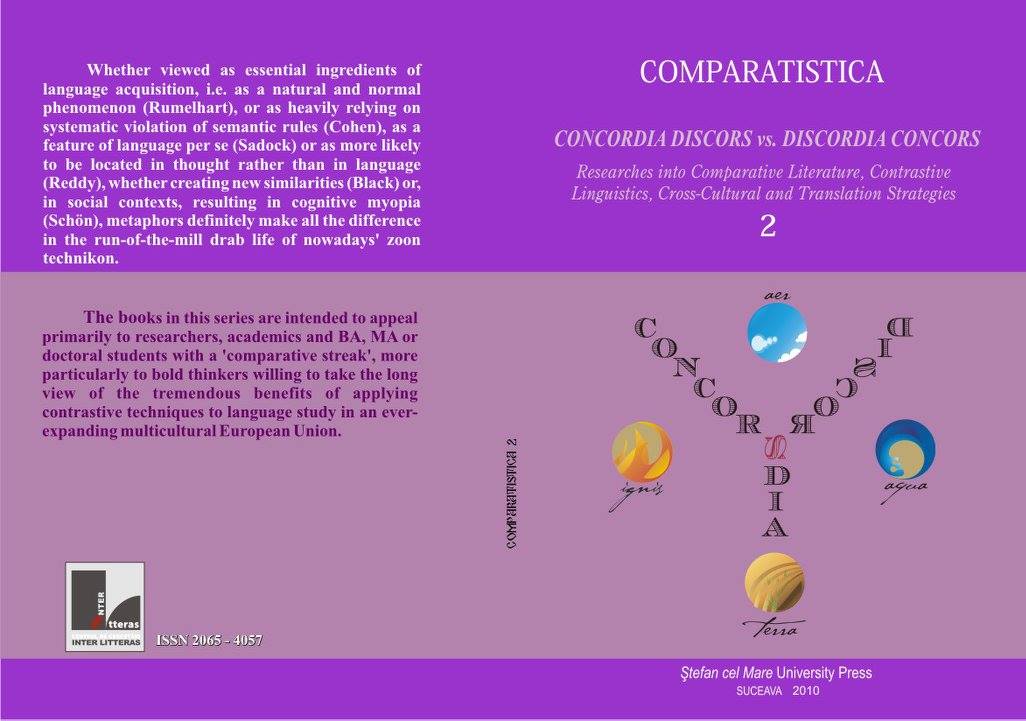
Keywords: poetry; translation; strategies; metaphor;
Translation of poetry relies on some strategies that envisage the text as a unit of translation. Consequently, the translator will adapt his/her methods according to the type of text, focusing also on the target culture. Metaphors, as stylistic devices of poetry, are culturally bounded to a certain way of viewing the world; that is, the translator must take into account first the culture involved in the translation process and then the linguistic and formal aspects.
More...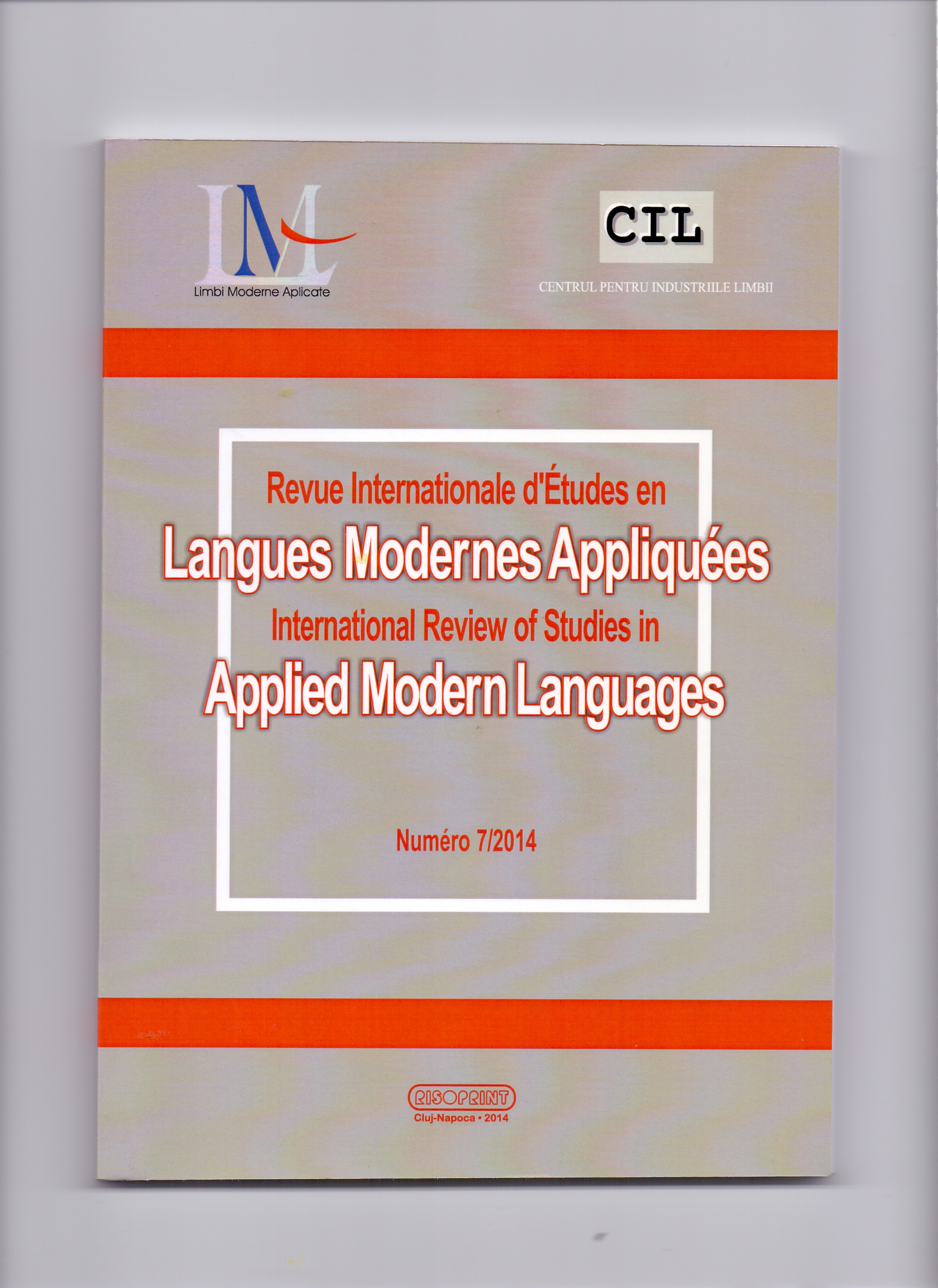
Keywords: instruction manual; user manual; specialized translation; genre analysis; user guide;
This article describes English instruction manuals as a specialized genre in relation to their translation into other languages. Instruction manuals are a frequently used genre in today's world. In order to translate them appropriately, translators need to know their characteristics. Although they seem easy to understand and translate, instruction manuals have certain syntactic, semantic, and pragmatic characteristics that should be known in advance by any translator who sets out to translate such a text. Using a framework of genre analysis suggested by Anthony Pym, the article describes instruction manuals based on seven major categories.
More...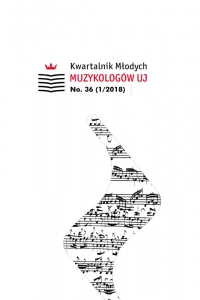
Keywords: Apolinary Kątski; virtuoso; violin; infant prodigy; Niccolò Paganini;
Infant prodigies were a common phenomenon in the 19th century. They astonished the audience not only through their impressive abilities, but also the innocent beauty and the youthful grace. The perfect example of this is Apolinary Kątski (1826–1879), a violin virtuoso and a composer, known mainly as the founder of the Institute of Music in Warsaw, who, since he was three, was recognizable in concert halls all over Europe.According to the author, the early stage of the violinist’s activity requires more attention. The presented article sketches the path of young Apolinary’s life from the moment of his first performance in 1829 to May 1838, when he was granted with the famous recommendation of Niccolò Paganini. It introduced him to numerous concert halls of Europe and positively influenced his further artistic activity. The hereby presented paper makes an attempt to find out the date and place of birth of Kątski in the context of the rich musical activity of his family members. It also shows the first artistic tours of the young virtuoso against the background of his artistically talented siblings: a violinist Karol, pianists Stanisław and Antoni, and a singer Eugenia. The crucial moment are reflections on the stay of the family in Paris and their first performances in the musical centre of Europe as well as contacts of the young violinist with Niccolò Paganini.The studies on the correspondence of the father of the virtuoso, Grzegorz Kątski, and research on the foreign newspapers let the author reconstruct the life of Apolinary Kątski in the very first stage of his musical activity and place him in the context of infant prodigies of the 18th and 19th centuries.
More...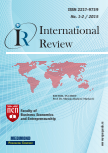
Keywords: programs; projects; program management; informational system; new products; production management system
The paper considers organizations that plan new product introduction in their production program by program management implementation. It analyses the most frequently used software structure for program management, as well as the structure of the most frequently used informational systems for production management. With the help of subjective and objective analyses, the needs for new methods are perceived and new informational system model and its implementation are defined.
More...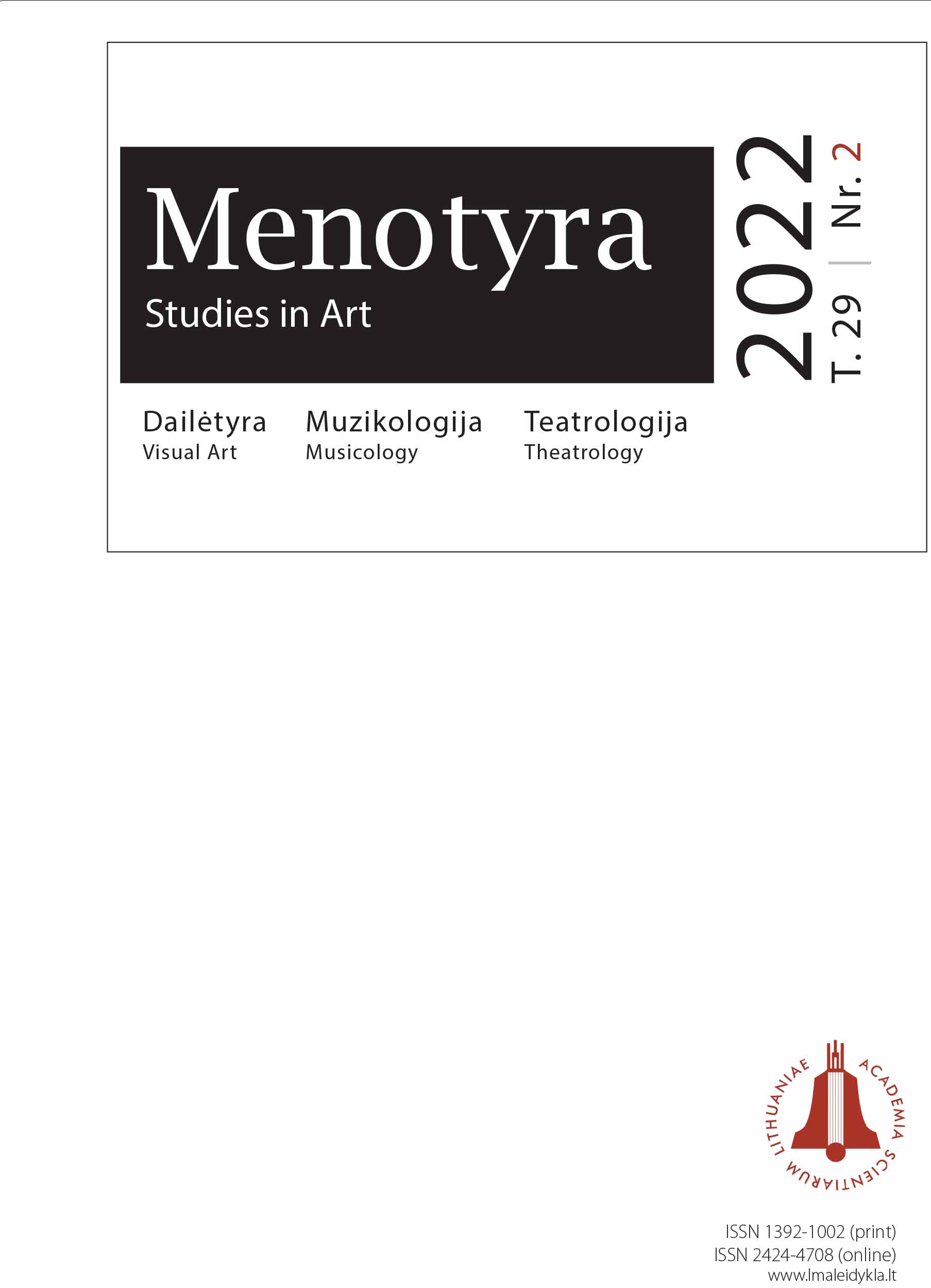
Keywords: German Lied; verbal text; musical text; translation theory; syntax;
The variants of translations of the poetic lyrics of Richard Strauss’s song Zueignung, Op. 10 No. 1 (to Hermann von Glim’s poem, 1885) into Lithuanian, done in the Soviet era and kept in the archives of the Lithuanian Radio and Television (LRT), testify to the negative influence of the translation process on the interrelationship between the poetic and musical texts in respect of the original piece. The methodology of comparing the original and translated lyrics used in the research revealed considerable interlinguistic and intralinguistic differences emerging after the lyrics had been translated into Lithuanian. In the analysis of translations of the texts of Strauss’s song Zueignung, Op. 10 No. 1, the authors relied on the model of translation criticism by Christiane Nord (1991, 2005). Based on it, several translation tactics applied intuitively by the Lithuanian translators in the process of the translation of the lyrics were observed. We refer to Vinay and Darbelnet’s indirect translation method (1958), Recker’s all kinds of translation transformation (1950), and Nord’s three-phase model (1991). It was impossible to identify the specific methods that the translators used in the translation of the verbal texts as the competence of a researcher into translation studies is required in order to establish such facts. The analysis of the translation variants of the poetic lyrics of Strauss’s song Zueignung led to the conclusion that in the translation process, the translators frequently changed the verbal syntax of the Lied, which contradicted the situations of rhetorisation of the musical syntax and the musical text. The results of the research prove that, from the point of view of the coexistence of the verbal and the musical texts, in quite a few cases automatic adaptation of the translated text to a stable musical text leads to the situation when musical works of the Lied genre can no longer function adequately. The reason for this is the discrepancy between verbal and musical syntaxes and their semantic meanings, which contradicts the idea of a meaningful interaction between the composer’s two texts.After translating a verbal text into another language, a Lied-type composition can convey the composer’s idea only in the presence of a harmonious structural and meaningful interaction between the two texts.
More...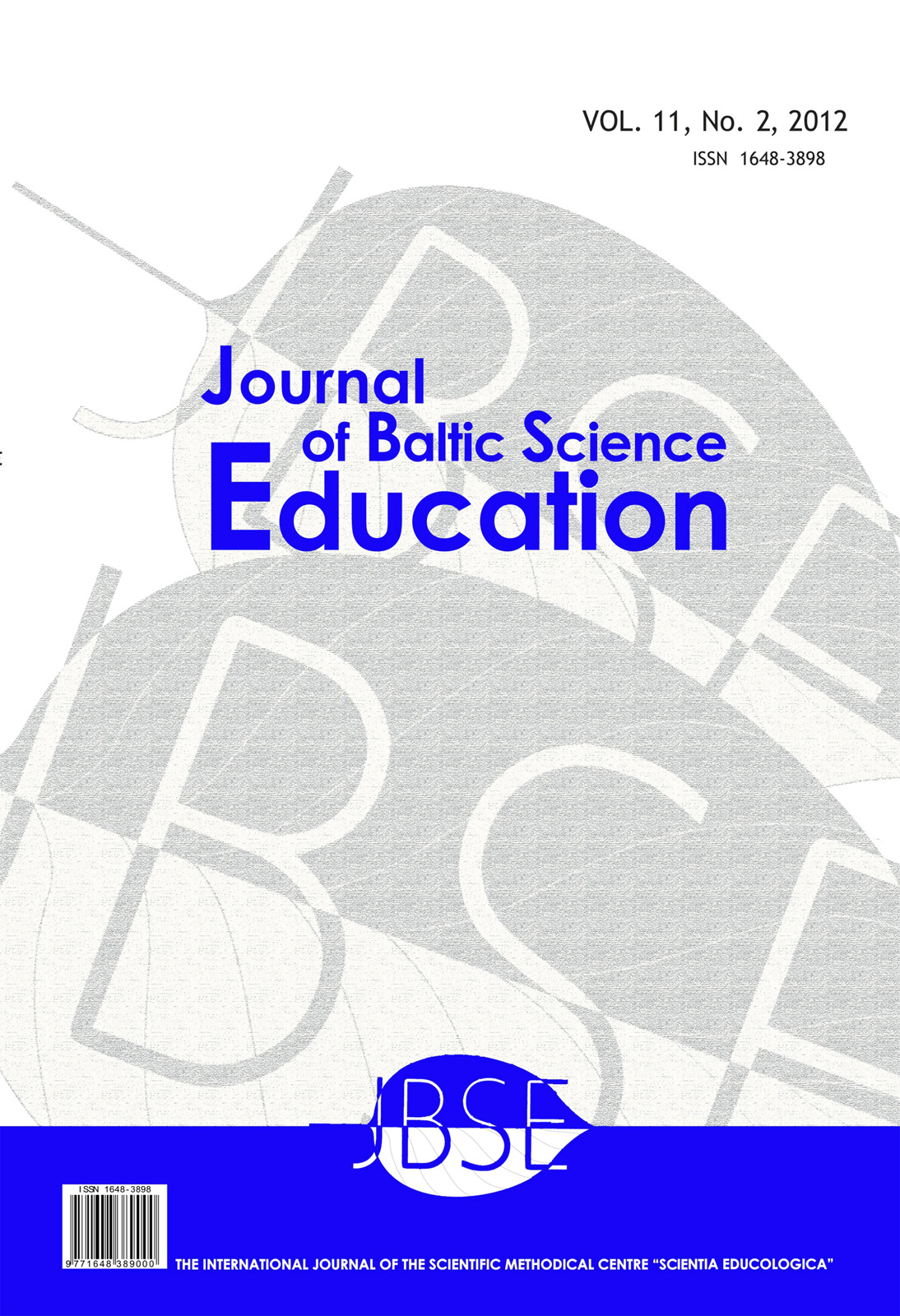
Keywords: plant attitude scale; validity; reliability; scale adaptation;
Plants are indispensable living elements of the world due to their role in sustaining of life. However, many studies have shown that in general children and adults’ knowledge and perceptions about plants are limited and they both find animals more interesting than plants. The purpose of this study was to adapt Plant Attitude Scale (PAS) developed by Fancovicova and Prokop (2010) into Turkish and to investigate the validity and reliability of the scale. Five hundred seventeen primary school students participated in the study. To determine the structural validity of PAS, exploratory and confirmatory factor analyses were conducted. The Cronbach alpha coefficient was calculated for the dimensions of scale. Results of the study indicate that Turkish version of the PAS is valid and reliable for measuring attitudes toward plants.
More...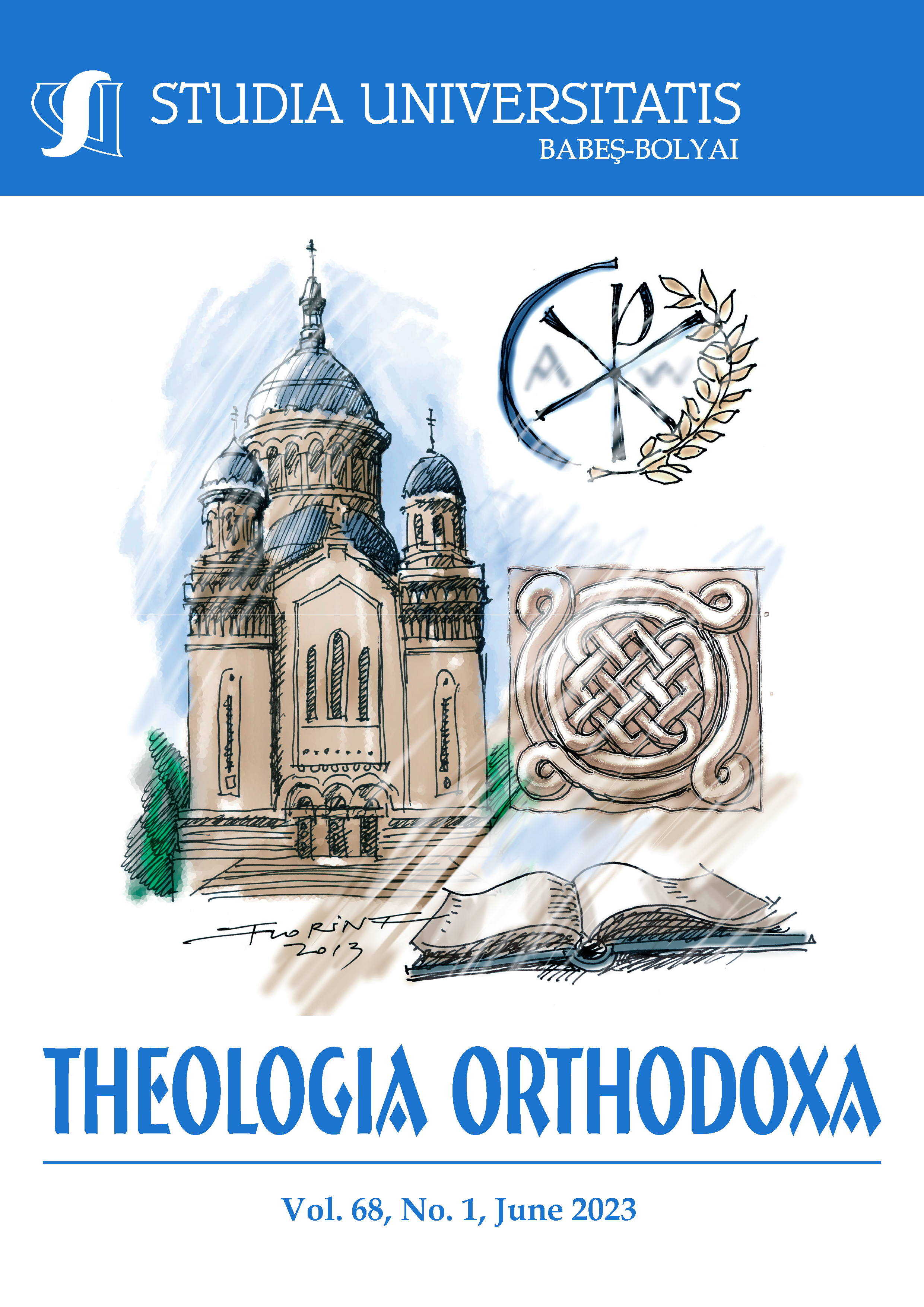
Keywords: Constantinople – Istanbul; Christians in the Ottoman Empire; Orthodox – Protestant relations; Travelers in the Ottoman Empire; Byzantium and the Reformation; Humanism and Byzantium; Byzantine ...;
This paper deals with the reception of the Byzantine churches of Constantinople by Protestant scholars who visited the building complex of the Pammakaristos, then the seat of the Patriarchate of Constantinople, as well as other churches within the Patriarchate’s jurisdiction in the Ottoman capital. In their travel accounts, these scholars reported on the architecture, the mural decoration, the icons, liturgical structures, and relics they saw, as well as on the liturgy and other offices celebrated in monuments dating from the Byzantine period and still in the hands of Christians (Orthodox and Armenian). They also witnessed the Hagia Sophia and other historic Byzantine churches that had been converted into Islamic shrines. Their remarks on the ways Christians and Muslims used the Byzantine monuments and approached Byzantine art and architecture reveal their knowledge of as well as their position toward Orthodox Christianity and its Byzantine background.
More...